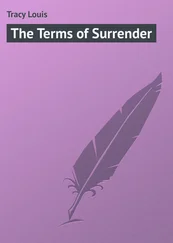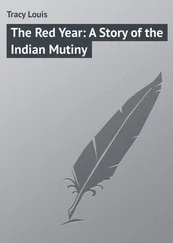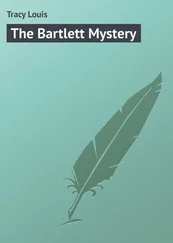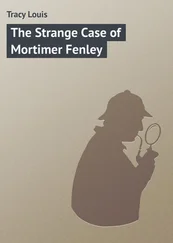Louis Tracy - The Message
Здесь есть возможность читать онлайн «Louis Tracy - The Message» — ознакомительный отрывок электронной книги совершенно бесплатно, а после прочтения отрывка купить полную версию. В некоторых случаях можно слушать аудио, скачать через торрент в формате fb2 и присутствует краткое содержание. Жанр: foreign_prose, на английском языке. Описание произведения, (предисловие) а так же отзывы посетителей доступны на портале библиотеки ЛибКат.
- Название:The Message
- Автор:
- Жанр:
- Год:неизвестен
- ISBN:нет данных
- Рейтинг книги:3 / 5. Голосов: 1
-
Избранное:Добавить в избранное
- Отзывы:
-
Ваша оценка:
- 60
- 1
- 2
- 3
- 4
- 5
The Message: краткое содержание, описание и аннотация
Предлагаем к чтению аннотацию, описание, краткое содержание или предисловие (зависит от того, что написал сам автор книги «The Message»). Если вы не нашли необходимую информацию о книге — напишите в комментариях, мы постараемся отыскать её.
The Message — читать онлайн ознакомительный отрывок
Ниже представлен текст книги, разбитый по страницам. Система сохранения места последней прочитанной страницы, позволяет с удобством читать онлайн бесплатно книгу «The Message», без необходимости каждый раз заново искать на чём Вы остановились. Поставьте закладку, и сможете в любой момент перейти на страницу, на которой закончили чтение.
Интервал:
Закладка:
“You’re goin’ shoppin’, sonny,” he exclaimed. “I’ve been earnin’ good money to–day. Sheer off for ‘arf an hour, an’ I’ll tie up the dinghy. I’ve got a notion that a pint would be a treat.”
Thus it came to pass that while Señor Miguel Figuero was puzzling, even alarming the millionaire yacht–owner with his broken talk of Captain Varden, Dep’ty Commissioner and leader of bush expeditions – alarming him so thoroughly that he never dreamed of associating Miss Evelyn Dane with the Polly Perkins of Peter’s juvenile memories – Arthur Warden himself was driving in a hansom from Waterloo to the Foreign Office, and wondering what new phase of existence would open up before him when his news became known to the men who control the destinies of Outer Britain.
CHAPTER V
A MAN AND A STORY – BOTH UNEMOTIONAL
Warden, running the gauntlet of doorkeepers and other human watch–dogs, was finally ushered into the presence of an Under Secretary. To him he detailed his business, and, lacking neither the perception nor the modesty that often characterize men of action, he had barely begun to speak ere he fancied that his recital did not command a tenth part of the interest it warranted. Few talkers can withstand the apparent boredom of a hearer, and Warden happened not to be one of the few. Condensing his account of the proceedings on board the Sans Souci to the barest summary, he stopped abruptly.
The Under Secretary, leaning back in his chair, rested his elbows on its comfortable arms, and pressed together the tips of his outspread fingers. He scrutinized his nails, and seemingly was much troubled because he had not called in at the manicurist’s after lunch. Nevertheless, being an Under Secretary, he owned suave manners, and the significance of Warden’s docket–like sentences did not escape him.
“Is that all?” he asked, turning his hands and examining their backs intently.
“Practically all.”
There was silence for a while. A clock ticked softly as if to emphasize the peace that reigned on the park side of Whitehall.
“But you make certain deductions, I take it?” murmured the official.
“I could hardly fail to do that, knowing West Africa as I do,” was the curt answer. Warden was really annoyed with the man. Without wishing him any positive evil, he wondered how far the Foreign Office cult would carry such an exquisite through a Bush campaign, with its wasting fever, its appalling monotony, its pathless wanderings midst foul swamp and rain–soaked forest – perhaps a month’s floundering through quagmire and jungle with a speedy end under a shower of scrap iron fired from some bell–mouthed cannon.
“Will you be good enough to favor me with them?” purred the other, now absorbed in his palms.
“If I had a map – ” began Warden, almost contemptuously.
The Under Secretary rose with a certain languid elegance. He was really tired, having worked at the Macedonian gendarmerie regulations until three o’clock that morning. High on the wall, behind Warden’s chair, were several long, narrow, mahogany cases, each fitted with a pendent cord. The Under Secretary pulled one, and a large map of Africa fell from its cover.
“I am fairly well acquainted with the Protectorate, but now you can talk to scale,” he said, going back to his seat and resuming his nonchalant attitude.
Warden, still smarting under a sense of the evident insignificance of Britain beyond the seas in the eyes of its home–dwelling custodians, spoke brusquely enough.
“On the Benuë river, a tributary of the Niger, four hundred miles from the coast,” he said, “you will find the town of Giré in the Yola District. You see it is just within the sphere of British influence. Germany claims the opposite bank. Well, Oku is near Giré. Oku is not on the map – ”
“I put it there myself yesterday,” broke in the Under Secretary.
Warden was gifted with keen sight. He swung round and gave the huge sheet on the wall a closer scrutiny. A great many corrections had been made on it with pen and ink. They were carried out so neatly that they resembled the engraved lettering.
For an instant his eyes met those of the Under Secretary; thenceforth a better understanding reigned.
“I beg your pardon,” he said. “Since you gave attention to the position of Oku so recently, I am half inclined to believe that not only my information but my opinions are forestalled.”
“We have been at cross purposes,” murmured the tired voice. “You are Captain Arthur Warden, who commanded the Oku punitive expedition thirteen months ago. Since early yesterday morning the Colonial Office, at my request, has been trying to discover your whereabouts – trying in vain, I gather – or you would have mentioned the fact. I really wished to consult you with reference to this very topic. It is all the more gratifying that chance should have led you to be a witness of events which were surmises on our part, and that your sense of duty should bring you here at the earliest possible moment.”
Warden positively blushed. It was a relief that the Under Secretary was obviously inclined to visit his manicurist that afternoon rather than wait till the morrow. Such preoccupation gave him time to recover. But he devoted no more time to silent theories anent the disgraceful apathy of the home authorities with reference to West African affairs.
“I cannot insist too strongly on the efforts that are being made by our neighbors to undermine British influence in that quarter,” he said. “Their traders pander to native excesses and humor their prejudices. Their pioneers are constantly pushing northward toward the shores of Lake Tchad. Arms and ammunition are being smuggled across the boundary at many points. Preparations are quietly in progress for a transfer of power if ever British authority shows signs of weakening. Therefore, I draw the worst auguries from the presence in Cowes of a clever and unscrupulous filibuster like Figuero, especially when he acts as bear–leader to three disaffected chiefs. Oku, as you know, is an insignificant place, but it has one supreme attribute that gives it among the negroes the importance of Mecca in the Mohammedan world. It is the center of African witchcraft. Its ju–ju men are the most noted in the whole continent. Their fetish is deadly and irresistible. They can compass the ruin of tribal leaders who are immeasurably more wealthy and powerful than any of their own men. I do not pretend to explain the reason – I can only state the fact – but there can be no gainsaying the simple truth that if men of Oku place their ban on any tribe or individual, that tribe or that man is doomed.”
“Can you give instances?”
“Yes. As far away as the river Akini, in the Yoruba District” – and this time Warden did not point to the map, though his words bridged six hundred miles miles – “there was a quarrel between the up–country traders and the shippers at Lagos. The merchants in the interior tried to close the trade routes, but the local chiefs refused to help them. By some means the traders secured the Oku ban on their side. The Yoruba natives resisted it.
“By Jove! both they and the factors at Lagos were glad enough to come to heel when every ounce of stuff was diverted into French Dahomey. There was no overt act or threat. Oku methods are too clever for that. The authorities were powerless. Hunger coerced the natives, and financial loss brought the people on the coast to terms. And this took place where we were paramount! Heaven only knows what excesses the Oku fetish has caused in inter–tribal wars. Why, when I attacked them, I had to break with my own hands every ju–ju token on the road. Not even our Hausa troops would pass them otherwise.”
Читать дальшеИнтервал:
Закладка:
Похожие книги на «The Message»
Представляем Вашему вниманию похожие книги на «The Message» списком для выбора. Мы отобрали схожую по названию и смыслу литературу в надежде предоставить читателям больше вариантов отыскать новые, интересные, ещё непрочитанные произведения.
Обсуждение, отзывы о книге «The Message» и просто собственные мнения читателей. Оставьте ваши комментарии, напишите, что Вы думаете о произведении, его смысле или главных героях. Укажите что конкретно понравилось, а что нет, и почему Вы так считаете.












